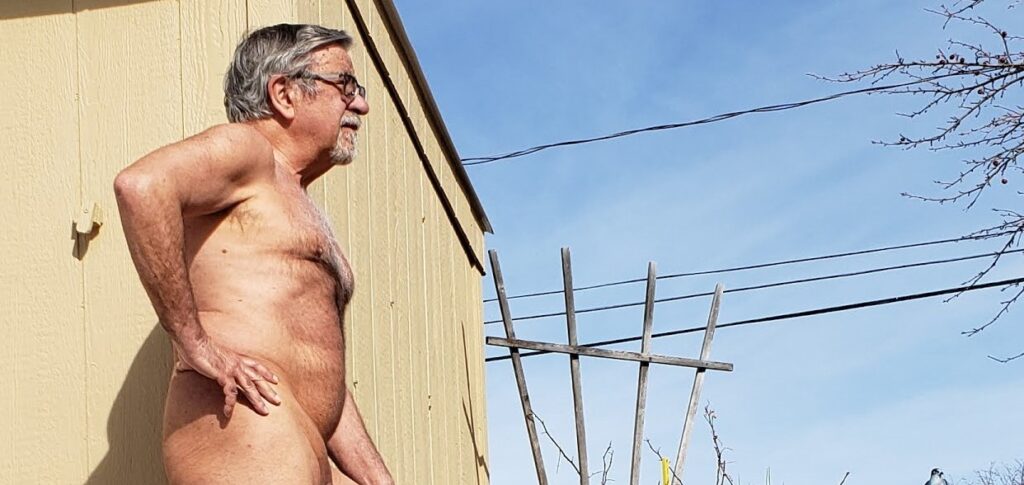
There is no question that naturists become vulnerable when they shed their clothing. There is a world which surrounds a naked person which more often than not, will judge and attempt social, economic, psychological, and sometimes physical harm. Knowing this, most naturists [or whatever you want to call people who feel more at home with themselves while nude] create safe spaces within which they can be themselves, be authentic. Within their homes with draperies closed, in private garden spaces where such exist, in gated communities, in abandoned bits of nature – there we believe we are safe.
We find others with whom we share the same value for authenticity and nudity. After all, they have dared to be as vulnerable as us. Because of the shared value of nudity, a level of trust was given. With a community, the sense of being alone and isolated because of our nudity was lessened. Naturists share easily with each other based on the trust of a shared philosophy. With real-life experiences expanding our sense of community, moments with others shared at beaches or events at naturist venues, our personal well-being blossoms. We begin to like ourselves better, our bodies and our psyche. We accept others more easily without judging them based on appearances.
For some, that community is extremely limited, if it exists at all, in the face-to-face world. Social media sites, like Twitter, Facebook, MeWe, and cyber-gated communities such as Naturist Community and Naktiv [Nook] provide the needed sense of community and belonging. Because they are social media sites, there isn’t the same level of trust. Though there are images that proclaim the named as being naturist or nudist, the only certainty is that not everyone is whom they tell us they are.
It takes time to give trust. That trust only comes through dialogue. Needless to say, computer-mediated dialogue is less trustworthy than face-to-face dialogue. Missing are all the non-verbal cues we rely on to decode the real messages behind the words that appear on the screen. Yet, over time as we got to build trust, and we risk posting photos. And as expected, sometimes that trust backfires.
Somewhere along the way, we build attachments with these strangers turned into friends. Whether we do so in the face-to-face world or in the world of social media, these attachments bring the unspoken, sometimes unknown baggage of complex and complexed humans. Entering into relationship is always a risky venture. Though we know someone for years, there are somethings that don’t appear until one enters into a significant relationship. We all have complexes and triggers that set off those complexes.
Very few among us are aware of our own complexes. We only become aware that we aren’t okay when someone triggers one or more of our complexes. The storm that arises catches both parties in a relationship by surprise. Typically both parties blame the other for the storm. This is the same situation that exists for naturists or those that almost never expose themselves fully, even to their significant other, except in the heat of sexual passion.
However, for naturists, the issue of vulnerability increases the sense of unease and fear when confronted by these “storms.” Face-to-face storms rock the foundations of one’s psyche more intensely. Moving past these storms requires communication, a willingness to expose the hidden psychological inner warts and scars. That dialogue can rebuild trust. A lack of communication eats away at trust. Without trust, we are left wounded and alone.
